Before the season, we wanted to define what success would look like for every major league team this year. We believe in a broad definition of success, and we tried to appreciate that a single great memory or an unexpected breakout can make a 76-win season worthwhile.
Although, of course, 96-win seasons are usually more worthwhile.
We're more than halfway through the season, and this is an early assessment: How have things gone by the standards each team might have set for itself, and what, if any, resetting of goals is appropriate for the second half?
Two notes about what's in the parentheses after team names: "Projected wins" is how many games the team is likely to win, according to Baseball Prospectus' rest-of-season simulations. It is not what a team is on pace for but a combination of actual record and projected second half. Playoff odds are the chances each team has of making the division series -- either winning their division or winning the wild card and the wild-card game. We're ranking by a metric we devised called SUCCESS, which is actually just the word success but in all capital letters.
1. Boston Red Sox (104 projected wins, 79.6 percent playoff odds)
 The Good Stuff: Has there been a single bad day to be a Red Sox fan this year? Yes. The bullpen gave up six eighth-inning runs to blow a lead on Opening Day, putting Boston in last place. Then they won nine in a row and 17 of 18, they haven't had a three-game losing streak to date, and they're on pace to win 112 games, which would be the third-most by any team since baseball went to a 162-game season. No team in baseball has a higher OPS in high-leverage situations (Mookie Betts, J.D. Martinez, Xander Bogaerts and Andrew Benintendi all rank in the top 15 among all players), and no team in baseball has allowed a lower OPS in high-leverage situations. Betts has missed 20 games, but when he has played, he has pretty clearly outplayed even Mike Trout, for a half-season at least. Martinez, signed for five years this winter, has thus far matched David Ortiz's best offensive seasons in Boston. The Red Sox were "consensus underdogs" to the Yankees, we wrote in March, but now they're one of the great teams of the modern era, and Betts, if not quite the game's best player, is its most perfect franchise superstar.
The Good Stuff: Has there been a single bad day to be a Red Sox fan this year? Yes. The bullpen gave up six eighth-inning runs to blow a lead on Opening Day, putting Boston in last place. Then they won nine in a row and 17 of 18, they haven't had a three-game losing streak to date, and they're on pace to win 112 games, which would be the third-most by any team since baseball went to a 162-game season. No team in baseball has a higher OPS in high-leverage situations (Mookie Betts, J.D. Martinez, Xander Bogaerts and Andrew Benintendi all rank in the top 15 among all players), and no team in baseball has allowed a lower OPS in high-leverage situations. Betts has missed 20 games, but when he has played, he has pretty clearly outplayed even Mike Trout, for a half-season at least. Martinez, signed for five years this winter, has thus far matched David Ortiz's best offensive seasons in Boston. The Red Sox were "consensus underdogs" to the Yankees, we wrote in March, but now they're one of the great teams of the modern era, and Betts, if not quite the game's best player, is its most perfect franchise superstar.
The Bad Stuff: The Yankees have been so good that the Red Sox are one bad week from being in the wild-card game, and the sport's sadistic showrunners seem to be setting 2018 up to be The Year A Team Won 109 Games And Lost The Wild-Card Game. (Chris Sale, who would presumably start a wild-card game for Boston, is arguably the best pitcher in the world, but still.) David Price, with four years left on his contract after this season, hasn't gotten better, but by this point, that disappointment has been baked in.
Success Reset: Make it to the ALCS. The Red Sox are young and good and not facing any competitive cliffs after this season. Really, anything short of that nightmare wild-card-loss scenario will mean a very satisfying, very memorable six months for Boston fans.
2. Houston Astros (102 projected wins, 98.4 playoff odds)
 The Good Stuff: The Astros' third-order win percentage -- which estimates how many wins a team "should" have based on its underlying offensive and defensive performances -- is .709, the best in baseball and, for the moment, the highest in major league history. We wrote before the season that the Astros were playing "for two things: to build up their dynasty claim, which probably requires three titles in a short time, or to stay relevant, which is to say, to avoid disaster, keep a 90-win outlook," etc. One way to build up the dynasty claim is to have people citing advanced stats saying you're having the best season in major league history.
The Good Stuff: The Astros' third-order win percentage -- which estimates how many wins a team "should" have based on its underlying offensive and defensive performances -- is .709, the best in baseball and, for the moment, the highest in major league history. We wrote before the season that the Astros were playing "for two things: to build up their dynasty claim, which probably requires three titles in a short time, or to stay relevant, which is to say, to avoid disaster, keep a 90-win outlook," etc. One way to build up the dynasty claim is to have people citing advanced stats saying you're having the best season in major league history.
They lead the majors in OPS+ and ERA+. Their starters have the lowest ERA in the majors, and their relievers are second, a single two-run inning behind the Yankees. The Astros still haven't used a sixth starting pitcher, a trick only one team in the five-man-rotation era has pulled off. Barring a bad second half, they'll be the 11th team since World War II to win 100 games in consecutive seasons. The postseason involves a lot of luck due to short series and things out of a team's control. But even if the Astros don't win the World Series this year, they've advanced their case to be remembered, decades from now, as one of the all-time great teams.
The Bad Stuff: Their closer, Ken Giles, is in Triple-A after a frustrating first half (high ERA) and a frustrated outburst on the mound. Houston has had glued-together bullpen plans in each of its recent postseason appearances, which worked last year but very nearly didn't; Giles would have made things a lot easier by just being awesome. (Giles also has the 15th-lowest FIP among all relievers this year -- that's good, like having a low ERA -- in keeping with the Astros' Nothing Is Actually Bad season.)
Success Reset: Win the World Series (they have the highest likelihood of it, according to BP's odds) or win 100-plus games and make it to the World Series.
3. New York Yankees (103 projected wins, 74.9 playoff odds)
 The Good Stuff: They're almost as good as the Astros by third-order win percentage (sixth-highest of all time) and almost as good as the Red Sox by record (a 106-win pace), but they're also 4½ games out of first place. They're going to set the all-time record for home runs in a season, they have the third-youngest lineup in the league, they have the best bullpen in the league, and they actually got under the luxury tax, just like they said they would. Theologians are writing columns in the New York Times declaring that the Yankees are evil, "gargantuan and heedless, invincible." That's how you know the Yankees are all the way back and in almost no danger of being bad for about seven years.
The Good Stuff: They're almost as good as the Astros by third-order win percentage (sixth-highest of all time) and almost as good as the Red Sox by record (a 106-win pace), but they're also 4½ games out of first place. They're going to set the all-time record for home runs in a season, they have the third-youngest lineup in the league, they have the best bullpen in the league, and they actually got under the luxury tax, just like they said they would. Theologians are writing columns in the New York Times declaring that the Yankees are evil, "gargantuan and heedless, invincible." That's how you know the Yankees are all the way back and in almost no danger of being bad for about seven years.
The Bad Stuff: After Luis Severino, the rotation has been mostly bad, and a Game 2 starter, as it stands now, would be CC Sabathia. Jordan Montgomery is done after Tommy John surgery, and Sonny Gray has been a disaster. The Yankees probably need only four decent innings per game from their starters in October, but even that demand might require a trade or two.
Success Reset: Beat the Red Sox, either in the division or in a playoff series.
4. Philadelphia Phillies (88 projected wins, 64.6 playoff odds)
 The Good Stuff: The biggest playoff-odds gainers, the Phillies have tripled their chances of winning the World Series (from 2 percent to 6 percent), according to BP's simulations. They have a deep, young rotation, backed up by a deep, high-ceiling farm system. Most importantly, the Phillies appear to have convinced their owner to let them spend big on this core, which is often a general manager's most urgent challenge:
The Good Stuff: The biggest playoff-odds gainers, the Phillies have tripled their chances of winning the World Series (from 2 percent to 6 percent), according to BP's simulations. They have a deep, young rotation, backed up by a deep, high-ceiling farm system. Most importantly, the Phillies appear to have convinced their owner to let them spend big on this core, which is often a general manager's most urgent challenge:
Owner John Middleton has emerged as a driving force in Philly. He's very aggressive and has no reservations about spending money. This is hard to fathom, but I've talked to people who think he might try to sign both Bryce Harper and Manny Machado as free agents this winter. https://t.co/kT9jzpul9M
— Jerry Crasnick (@jcrasnick) July 15, 2018
The Phillies have the NL's third-best record, and they've done it with the NL's youngest lineup and something like the 23rd-highest payroll in the game. There are at least two or three very famous names who will probably join this club in the next 12 months and maybe as soon as, who knows, today.
The Bad Stuff: The defense has been as bad as any team's, and the game's youngest lineup hasn't produced any breakouts this year. A lot is still riding on the further development of once-top prospects such as Nick Williams, Maikel Franco, Jorge Alfaro, Scott Kingery and J.P. Crawford -- all of whom remain young but not that young anymore.
Success Reset: Make it to a division series, and keep Aaron Nola healthy forever.
5. Milwaukee Brewers (88 projected wins, 42.0 playoff odds)
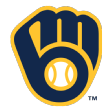 The Good Stuff: For all the talk about how slowly the free-agent market developed last winter, it's worth noting that last winter's free agents have been almost all terrible! There are exceptions -- J.D. Martinez is an All-Star, Mike Moustakas should be in demand as the trade deadline approaches, and Jake Arrieta has been OK -- but the top 20 free agents on Keith Law's list last winter have included seven players who have performed below replacement level this year, and the median free agents from that list are Eric Hosmer (0.3 WAR) and Lucas Duda (0.1). The top 20 free agents have been worth, on average, just 0.6 WAR.
The Good Stuff: For all the talk about how slowly the free-agent market developed last winter, it's worth noting that last winter's free agents have been almost all terrible! There are exceptions -- J.D. Martinez is an All-Star, Mike Moustakas should be in demand as the trade deadline approaches, and Jake Arrieta has been OK -- but the top 20 free agents on Keith Law's list last winter have included seven players who have performed below replacement level this year, and the median free agents from that list are Eric Hosmer (0.3 WAR) and Lucas Duda (0.1). The top 20 free agents have been worth, on average, just 0.6 WAR.
The Brewers, who went into the offseason looking to add the final veteran pieces to a rebuilding project, did really well: Lorenzo Cain, at 4.5 WAR, has been the best of the 2017-18 free-agent class and leads all National Leaguers in WAR at the break. Jhoulys Chacin has been the second-best pitcher of the group, behind Arrieta but well ahead of disasters Lance Lynn, Alex Cobb and (so far) Yu Darvish. It's really hard to wade into the free-agent market without getting saddled with expensive mistakes, never more so than last winter. The Brewers, though, committed less than $100 million and got an MVP candidate and Chacin, who leads the NL in starts and has a better ERA than James Paxton and Lance McCullers. Milwaukee's playoff odds have jumped from 29 percent on Opening Day to 42 percent today.
The Bad Stuff: The Brewers entered the All-Star break on a six-game losing streak, and their 1½-game lead in the NL Central is now a 2½-game deficit to a Cubs team that, on paper, is probably better. Now the Brewers are thrown into the seven-team wild-card race, and they lost in the Manny Machado trade talks. Orlando Arcia, a 23-year-old shortstop who was supposed to be a franchise building block, was dropped to Triple-A after he hit .197/.231/.251 through June.
Success Reset: Make the playoffs.
6. Oakland A's (88 projected wins, 16.6 playoff odds)
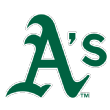 The Good Stuff: The A's bottomed out at 1 percent playoff odds in mid-June and then went 19-6 to close the first half. It's not quite a repeat of the 2013 season -- when they bottomed out at 0.0 percent, then won the AL West -- or the 2002 season, when they were under .500 in June and ended up with 103 wins and a movie about them. But it's also not yet not a repeat of those seasons, and it reminds us of that old Billy Beane bit about breaking the season into thirds: "The first two months are spent figuring out what each team has, the next two months are spent trying to get what they need and the last two months are the race to play in October."
The Good Stuff: The A's bottomed out at 1 percent playoff odds in mid-June and then went 19-6 to close the first half. It's not quite a repeat of the 2013 season -- when they bottomed out at 0.0 percent, then won the AL West -- or the 2002 season, when they were under .500 in June and ended up with 103 wins and a movie about them. But it's also not yet not a repeat of those seasons, and it reminds us of that old Billy Beane bit about breaking the season into thirds: "The first two months are spent figuring out what each team has, the next two months are spent trying to get what they need and the last two months are the race to play in October."
The downer of that wisdom is that the A's haven't exactly been trying to get what they need -- unless it's the 2018 versions of Edwin Jackson (recently signed), Brett Anderson and Trevor Cahill (both back healthy and in the rotation) -- nor are they likely to. But they are playing games that count in the second half, and they're essentially in a two-team race for the second wild-card spot, so a Seattle meltdown could well be enough.
The Bad Stuff: Jharel Cotton and top prospect A.J. Puk are both missing the entire season after Tommy John surgeries; the American League is so top-heavy that the A's could be a six-game losing streak away from being sellers.
Success Reset: They close the season with three on the road in Seattle and three on the road in Anaheim. If either of those series matters, it's a successful season. As Jed Lowrie put it this week: "With a young team, I think we need to narrow our focus. Be aware of the standings but not be driven by the standings, if that makes sense."
7. Seattle Mariners (90 projected wins, 25.9 playoff odds)
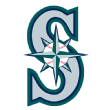 The Good Stuff: The Mariners' incredible -- like, almost literally incapable of being believed -- season remains unanswerable. They have a .598 win percentage, which would be the team's best since 2001. They've also been outscored, which is one of those things that bad teams usually do. If they make the playoffs like this, well, hahaha, yessss, that's definitely the most fun way to win. If they don't, and all the people who pointed and shook their heads and muttered "run differential" in the first half get to say "I told you so," that's the least fun way to lose.
The Good Stuff: The Mariners' incredible -- like, almost literally incapable of being believed -- season remains unanswerable. They have a .598 win percentage, which would be the team's best since 2001. They've also been outscored, which is one of those things that bad teams usually do. If they make the playoffs like this, well, hahaha, yessss, that's definitely the most fun way to win. If they don't, and all the people who pointed and shook their heads and muttered "run differential" in the first half get to say "I told you so," that's the least fun way to lose.
Still, though: James Paxton struck out 16 in one start and threw a no-hitter in the next. Both players from the Taijuan Walker trade (Jean Segura and Mitch Haniger) made the All-Star team, while Walker recovers from Tommy John surgery. Closer Edwin Diaz is becoming a cult legend. All good things.
The Bad Stuff: It would be a fittingly bleak end to the Mariners' postseason drought for them to finally make the playoffs but have Robinson Cano ineligible for the postseason roster (after being suspended for PEDs), Ichiro retired (because at 100 years old he finally hit the wall) and Felix Hernandez left off the postseason rotation (with his 5-plus ERA).
Success Reset: The Mariners haven't made the playoffs since 2001, the longest drought in the sport. At this point, any season that ends in October is a success, and any season that doesn't is a failure.
8. Los Angeles Dodgers (90 projected wins, 70.1 playoff odds)
 The Good Stuff: The Dodgers have been doing this thing the past few years where they spend about $200 million on payroll, but then their best players are 28-year-olds who make the minimum or who just got waived by, like, the Mets. This year, their best player has been Max Muncy, who spent last year in Triple-A after the A's released him, and their best pitcher has been Ross Stripling, a 28-year-old who began the season in low-leverage relief work. This is incredibly endearing and impressive, and the Dodgers are in first place, and they also got far enough under the luxury-tax threshold to add Manny Machado this week.
The Good Stuff: The Dodgers have been doing this thing the past few years where they spend about $200 million on payroll, but then their best players are 28-year-olds who make the minimum or who just got waived by, like, the Mets. This year, their best player has been Max Muncy, who spent last year in Triple-A after the A's released him, and their best pitcher has been Ross Stripling, a 28-year-old who began the season in low-leverage relief work. This is incredibly endearing and impressive, and the Dodgers are in first place, and they also got far enough under the luxury-tax threshold to add Manny Machado this week.
The Bad Stuff: They have the fifth-best record in the National League, and they're 13 games behind where they were at the same point last season. Back then, Corey Seager and Cody Bellinger might have been the best 23-or-younger teammates in baseball, but now Seager's out for the season (after a lackluster April) and Bellinger has hit just .256/.342/.505 over the past 12 months. Clayton Kershaw, over the past 12 months, ranks 45th in pitcher WAR, and the depressing case for letting him walk away this winter -- letting him finish his career as a Texas Ranger or something -- is getting stronger, if no more satisfying. The Dodgers should still win the NL West, but by "should" standards, they should've gone into the All-Star break up 10 games on the Diamondbacks, instead of a half-game. They have the league's worst OPS in high-leverage situations.
Success Reset: Win the World Series. Until they win one, this is the only standard for the Dodgers' current regime.
9. Atlanta Braves (86 projected wins, 39.9 playoff odds)
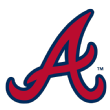 The Good Stuff: Ozzie Albies and Ronald Acuna might be the new best 23-or-younger teammates, and Mike Foltynewicz and Sean Newcomb are a plausible pair of 1-2 starters in a postseason series. Freddie Freeman might be the MVP frontrunner. The Braves, after four losing seasons, are a half-game out of first place.
The Good Stuff: Ozzie Albies and Ronald Acuna might be the new best 23-or-younger teammates, and Mike Foltynewicz and Sean Newcomb are a plausible pair of 1-2 starters in a postseason series. Freddie Freeman might be the MVP frontrunner. The Braves, after four losing seasons, are a half-game out of first place.
The Bad Stuff: There isn't really much downside potential this season, though if the Braves miss the playoffs by one game, there will be regrets. The Braves didn't invest a lot in this season, and GM Alex Anthopoulos seems unlikely to give up much for anything he deems a rental. This is almost a bonus competitive season for the Braves, 85 or so satisfying wins that needn't lead to anything in order to feel good.
Success Reset: Success is pretty much already clinched.
10. Los Angeles Angels (81 projected wins, 0.8 playoff odds)
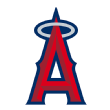 The Good Stuff: Most of what happens in this major league baseball season will not be remembered beyond a decade or two. But everybody will remember the year that Shohei Ohtani debuted, when he outhit everybody's expectations and threw the second-fastest average fastball of all starting pitchers. Most fans will remember, too, Mike Trout, who by some WAR models is having his best season as he continues to be the greatest player through his current age ever. Albert Pujols has passed some milestones and is back on the right side of replacement level. For a .500 team that has almost no shot at the playoffs, this has been a pretty memorable season.
The Good Stuff: Most of what happens in this major league baseball season will not be remembered beyond a decade or two. But everybody will remember the year that Shohei Ohtani debuted, when he outhit everybody's expectations and threw the second-fastest average fastball of all starting pitchers. Most fans will remember, too, Mike Trout, who by some WAR models is having his best season as he continues to be the greatest player through his current age ever. Albert Pujols has passed some milestones and is back on the right side of replacement level. For a .500 team that has almost no shot at the playoffs, this has been a pretty memorable season.
Meanwhile, the perception of the Angels' farm system has improved as much over the past three months as any team's, with 19-year-old Jo Adell in particular jumping from the top 50 to the top five prospects in the game. The Bad Stuff is going to say it's another wasted season of the era's greatest player in his prime, but the Angels seem closer to putting something together before Trout's deal ends in 2020 than they have in a long time.
The Bad Stuff: Another wasted season of the era's greatest player in his prime. Another depressing injury for Garrett Richards. An early arm injury that casts some doubt on whether we'll get many more seasons of Ohtani playing both ways.
Success Reset: Ohtani recovers without surgery and continues to hit like Kris Bryant in the meantime.
11. Chicago Cubs (94 projected wins, 89.5 playoff odds)
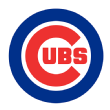 The Good Stuff: The better Javier Baez is, the less sniping there will be about the fun, beautiful, creative way he plays. It's good for us all that Baez is now, finally, as prophesied, a star.
The Good Stuff: The better Javier Baez is, the less sniping there will be about the fun, beautiful, creative way he plays. It's good for us all that Baez is now, finally, as prophesied, a star.
The Bad Stuff: Eh. The two big offseason acquisitions have been bad: Tyler Chatwood is walking almost a batter per inning, and Yu Darvish has been hurt and hit. There's really only one starter (Jon Lester) you'd want to give five innings to in October. But the Cubs' standard for success entering the season, we wrote, was the same as the Astros': Build onto the dynasty or just keep the perpetual-winning machine moving. Chicago has done the latter and might still do the former. The Cubs are the NL team most likely to win the World Series, according to BP, and Ian Happ (23), Albert Almora (24) and Baez (25) have all taken leaps forward. The whole team is stars. Why is this in The Bad Stuff? I don't know. It's good.
Success Reset: Win the World Series or break nothing trying.
12. Arizona Diamondbacks (87 projected wins, 43.0 playoff odds)
 The Good Stuff: They're practically tied with the Dodgers! The three uncomplicatedly good players (Paul Goldschmidt, A.J. Pollock, Zack Greinke) are still good, and Patrick Corbin has taken over the revolving Fourth Really Good Player position held intermittently by Robbie Ray, Jake Lamb, Jean Segura, David Peralta and J.D. Martinez over the past few years.
The Good Stuff: They're practically tied with the Dodgers! The three uncomplicatedly good players (Paul Goldschmidt, A.J. Pollock, Zack Greinke) are still good, and Patrick Corbin has taken over the revolving Fourth Really Good Player position held intermittently by Robbie Ray, Jake Lamb, Jean Segura, David Peralta and J.D. Martinez over the past few years.
The Bad Stuff: Last year's Diamondbacks rotation had the third-best ERA in baseball, but this year's has dropped to 16th. It's nothing dramatic: One pitcher had surgery, one got wild, one has allowed a bunch of home runs, and that's the difference between 93 wins and 87 or 85 or, maybe when it's all over, 83. The Diamondbacks had a six-game lead on May 1 and went 32-36 after that, and the Dodgers look a lot more intimidating when they're ahead of you and Manny Machado is batting third.
Success Reset: Go further than the Dodgers for once.
13. Cleveland Indians (91 projected wins, 98.9 playoff odds)
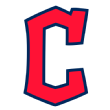 The Good Stuff: If you're a Clevelander born sometime after 1950, the best season you ever saw from a hometown position player was probably Roberto Alomar in 1999 or Jim Thome in 1996 or Manny Ramirez in 1999 or Kenny Lofton in 1993 or Albert Belle in 1995 or Grady Sizemore in 2006. Or, heck, maybe it was Jose Ramirez last year. No Cleveland ballplayer since the early 1950s has had an 8-WAR season, but whatever: These are all fantastic seasons, 6- and 7-WAR seasons, superstar seasons from superstar players
The Good Stuff: If you're a Clevelander born sometime after 1950, the best season you ever saw from a hometown position player was probably Roberto Alomar in 1999 or Jim Thome in 1996 or Manny Ramirez in 1999 or Kenny Lofton in 1993 or Albert Belle in 1995 or Grady Sizemore in 2006. Or, heck, maybe it was Jose Ramirez last year. No Cleveland ballplayer since the early 1950s has had an 8-WAR season, but whatever: These are all fantastic seasons, 6- and 7-WAR seasons, superstar seasons from superstar players
But now you're getting to see something about four levels above that. Ramirez, in a mere 94 games, has reached 6.6 WAR, which puts him one good game behind Mike Trout (and he has played two fewer games than Trout). He's on pace to hit 49 homers, steal 35 bases and double 44 times. He does it all while playing one of the best defensive third bases in the league, walking more often than he strikes out and almost never getting caught stealing. This is the best season, Mr. and Mrs. Clevelander, you've ever seen. The craziest thing is Francisco Lindor is almost a lock to pass 8 WAR, too.
The Bad Stuff: Actually, the craziest thing is that despite all this, Cleveland -- probably baseball's best team in last year's regular season -- has a worse record than the A's. Such are bullpens, which can be both a team's greatest strength and its greatest weakness within the span of 100 games. It'd be easy to see Cleveland's bullpen getting right and the club finally winning a World Series. But the A's have a better record right now, and we don't take that fact lightly.
Success Reset: Make the ALCS.
14. San Francisco Giants (82 projected wins, 9.3 playoff odds)
 The Good Stuff and The Bad Stuff: The Giants have the highest payroll in the National League this year, and it's not all leftover contracts they're slowly shedding: Andrew McCutchen and Evan Longoria and Tony Watson were all added this past winter to try to make the Giants good. The Giants aren't very good, and they're very expensive. This seems like a failure.
The Good Stuff and The Bad Stuff: The Giants have the highest payroll in the National League this year, and it's not all leftover contracts they're slowly shedding: Andrew McCutchen and Evan Longoria and Tony Watson were all added this past winter to try to make the Giants good. The Giants aren't very good, and they're very expensive. This seems like a failure.
But we're trying to judge these teams on the successes they were pursuing, and there's something to be said for this Giants season. Last year, the club won 64 games and tied for the worst record in baseball. In this era, that's the cue to tear it down, trade everything away, spend three years letting the ushers play and emerge from it all with a fresh start. But the Giants weren't really in a great position for that: They had a plausible core of star players (mostly Buster Posey, Brandon Belt, Madison Bumgarner and Brandon Crawford) signed to reasonable, long-term deals. Trading them, or almost anybody else from the underperforming 2017 season, would have meant selling low, and heck, with a couple upgrades they could project to be an 83-win, anything-could-happen roster. So they did that. They spent their owner's money to put a better product on the field, hoping it would compete and risking the possibility that it would be embarrassing.
It hasn't been embarrassing. It has been expensive, and it probably just pushes some inevitable rebuild a couple years down the road, but it has been a fine season: Brandons Belt and Crawford are both down-ballot MVP contenders, starting pitchers Dereck Rodriguez and Andrew Suarez have had encouraging rookie seasons, top prospect Steven Duggar has joined the show, Posey is doing the compiling he needs to lock a Hall of Fame induction, and Johnny Cueto is about six healthy starts from having trade value again. And the Giants are in it, sort of. They're in it enough to keep selling out the park every night. So, yes, they're spending a ton of money to put out a passable product, but that was the whole point, and there's some credit earned for that.
Success Reset: A winning season.
15. Colorado Rockies (83 projected wins, 13.5 playoff odds)
 The Good Stuff: This is probably one of the three or four best starting rotations the Rockies have ever had, tied for seventh in the majors in WAR, entirely 29 or younger and making a combined $4.25 million this year.
The Good Stuff: This is probably one of the three or four best starting rotations the Rockies have ever had, tied for seventh in the majors in WAR, entirely 29 or younger and making a combined $4.25 million this year.
The Bad Stuff: The offseason plan was to build a super bullpen out of expensive free agents and stuff. The Rockies' bullpen has been one of the league's worst. The other offseason plan was to sign Charlie Blackmon to a sweet, six-year extension that would keep him from hitting free agency. They completed the deal on April 4, and Blackmon's offensive numbers have gotten worse, and his fielding numbers (grain of salt, as with all half-season fielding metrics) have gotten unsustainable. He's below replacement level overall, and that's how big plans for midmarket teams often go awry.
Success Reset: Make the playoffs.
16. San Diego Padres (67 projected wins, 0.0 playoff odds)
 The Good Stuff: The perception of the Padres' already excellent farm system has improved over the past three months, with starting pitcher Chris Paddack leading a handful of prospects who've made jumps. That system should get even stronger this month: Relievers Craig Stammen, Kirby Yates and All-Star Brad Hand have all had excellent seasons and should collectively net a half-dozen younger players. The Padres weren't really aiming for anything more than that this year.
The Good Stuff: The perception of the Padres' already excellent farm system has improved over the past three months, with starting pitcher Chris Paddack leading a handful of prospects who've made jumps. That system should get even stronger this month: Relievers Craig Stammen, Kirby Yates and All-Star Brad Hand have all had excellent seasons and should collectively net a half-dozen younger players. The Padres weren't really aiming for anything more than that this year.
The Bad Stuff: The first year of eight committed to Eric Hosmer has been disappointing. Hosmer is having his worst offensive year since he was 22, with a slash line worse than the league-average hitter and a WAR barely in positive territory. If this is the one bad year he's going to have under this $144 million contract, fantastic, couldn't come at a better time! Just as likely, though, it's a sign that the Padres bought high on his career year and locked in his eight years of decline.
Success Reset: Hosmer matches his second half from last year.
17. Tampa Bay Rays (84 projected wins, 3.3 playoff odds)
 The Good Stuff: The Rays, after failing to live up to rosy statistical projections year after year, are playing about as well as the projections said. But that's not going to be anywhere near enough, so the Rays will spend the rest of the season in a posture of surrender, probably hoping they don't accidentally win 91 games and feel the pressure to try for the second wild-card spot.
The Good Stuff: The Rays, after failing to live up to rosy statistical projections year after year, are playing about as well as the projections said. But that's not going to be anywhere near enough, so the Rays will spend the rest of the season in a posture of surrender, probably hoping they don't accidentally win 91 games and feel the pressure to try for the second wild-card spot.
The Bad Stuff: Wilson Ramos, having an All-Star season, was one of the big names on the trade market -- but he got hurt just before the All-Star break. Chris Archer, despite big strikeout rates and a team-generous contract, is going on 500 innings with a worse-than-average ERA, and the math of when to trade him for maximum value has been recalculated so many times that the eraser is tearing a hole through the paper. Alex Colome, the closer to start the season, had a terrible start and didn't bring back very much when the Rays traded him in late May. When you're primarily in the trading-for-more-trade-pieces game, there's a lot of ways for things to go wrong.
Success Reset: Two months of dominance from Archer, and second-half adjustments by top prospect Willy Adames.
Nos. 18-23: The Run-Of-The-Mill Rebuilding Teams
All of these teams started the season with no real promise of competing, all have playoff odds below 2 percent, and they could arguably go in almost any order, but we'll organize it like this:
18. Cincinnati Reds (Matt Harvey working out, Scooter Gennett a star)
19. Pittsburgh Pirates (Sort of inching back into games-that-matter territory)
20. Toronto Blue Jays (Vlad Guerrero Jr. has been one of the best stories in baseball, though the Blue Jays have mostly been shamed for their role in keeping that story in the minors)
21. Detroit Tigers
22. Texas Rangers
23. Chicago White Sox
24. St. Louis Cardinals (82 projected wins, 7.4 percent playoff odds)
 The Good Stuff: They're not all the way out of it, and with Miles Mikolas, they keep alive their streak of seasons with at least one superstar you can't believe could possibly be that good.
The Good Stuff: They're not all the way out of it, and with Miles Mikolas, they keep alive their streak of seasons with at least one superstar you can't believe could possibly be that good.
The Bad Stuff: Last year's SYCBCPBTG, Tommy Pham, has fallen almost all the way back down to replacement level. Dexter Fowler, signed a year and a half ago, is well below even that. But perhaps more significantly, each of those players has had issues with the organization's style of criticism. So has flamethrowing rookie reliever Jordan Hicks, the near-bullying of whom was condoned by manager Mike Matheny -- ex-manager Mike Matheny, that is. He got fired last week, the sign of a disappointing record but also, it seems, problems that went beyond it.
Success Reset: Turn things around.
25. Minnesota Twins (77 projected wins, 1.2 playoff odds)
 The Good Stuff: Their division rivals in Cleveland seemed to be one of the league's four or five untouchable Super Teams. But good news! Cleveland's probably going to win only 90 or so games this year, meaning this division is wide open for ...
The Good Stuff: Their division rivals in Cleveland seemed to be one of the league's four or five untouchable Super Teams. But good news! Cleveland's probably going to win only 90 or so games this year, meaning this division is wide open for ...
The Bad Stuff: The only team in the AL Central that was even trying to compete with Cleveland, the Twins have been burned by a PED suspension (to Jorge Polanco), a couple disappointing last-piece acquisitions (Lance Lynn, Jake Odorizzi) and the continuing disappointment of two of the decade's best prospects. Byron Buxton -- hobbled by migraines, a broken toe and now a left wrist strain -- hit .156/.183/.200 in the majors and is now in Triple-A. Miguel Sano was sent down to High-A after hitting .203/.270/.405 for the Twins. It'd almost be nice, and would definitely be merciful, to quit focusing on them, but both are still so young and have shown such flashes that seasons still hinge on each player's star potential.
Success Reset: Turn things around.
26. Washington Nationals (83 projected wins, 18.5 playoff odds)
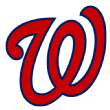 The Good Stuff: Juan Soto is a star at 19, and those guys almost all make the Hall of Fame. The Nationals are still in the race for the NL East, and boy, that's a lot of stars on their roster.
The Good Stuff: Juan Soto is a star at 19, and those guys almost all make the Hall of Fame. The Nationals are still in the race for the NL East, and boy, that's a lot of stars on their roster.
The Bad Stuff: It's probably the final year for this Nationals era, the one that began when they called up Scott Boras to ask about signing Mark Teixeira, and he told them that they'd be better off losing a billion games and drafting Stephen Strasburg and Bryce Harper. Now Harper's about to hit free agency -- the Nats have been the second-winningest team in baseball since his rookie season but haven't won a playoff series -- as is Daniel Murphy, and a roster that was up 9½ games at the break last year is down 5½ this time. Teams have bad years, but if the Nationals miss the playoffs, this would be a particularly humiliating one -- especially if they run into fired manager Dusty Baker anytime during the winter.
Success Reset: Turn things around.
27. New York Mets (71 projected wins, 0.0 playoff odds)
 The Good Stuff and The Bad Stuff: Jacob deGrom might be the National League MVP favorite if the Mets weren't the most frustrating, hapless, shoot-themselves-in-the-foot franchise in baseball right now. Instead, deGrom's 6-WAR, 1.68-ERA season has been good for a 5-4 record on a fourth-place team. And because the better you are on the Mets, the more likely you are to end up in a tense, simmering soap opera, deGrom is now in that.
The Good Stuff and The Bad Stuff: Jacob deGrom might be the National League MVP favorite if the Mets weren't the most frustrating, hapless, shoot-themselves-in-the-foot franchise in baseball right now. Instead, deGrom's 6-WAR, 1.68-ERA season has been good for a 5-4 record on a fourth-place team. And because the better you are on the Mets, the more likely you are to end up in a tense, simmering soap opera, deGrom is now in that.
Success Reset: Turn things around.
28. Miami Marlins (69 projected wins, 0.0 playoff odds)
 The Bad Stuff: Before the season, our assessment for what would constitute success in Miami went like this:
The Bad Stuff: Before the season, our assessment for what would constitute success in Miami went like this:
Everything they do this year will be sad, the product ugly, the philosophy underneath it uncomfortably crass. Lots of things will happen that will nudge up their chances of being good in 2020 or 2021, but the rewards are so far off -- not even "wait 'til next year" -- and uncertain that it'll be hard to be emotionally moved by them. ... But the very least they must do, the bar that every team that takes up one of the 30 spots in a space-limited league must clear, is to give the fans somebody to love.
I guess they cleared that bar: Brian Anderson could win the Rookie of the Year award, and J.T. Realmuto -- who wanted to be traded before the season began -- has become a true star, which will probably improve his trade value in the next couple weeks. But the Marlins are drawing fewer than 10,000 fans per game, more than 5,000 per game fewer than the next-worst draw. And the prospects they got back in the offseason -- when they traded away four stars, all of them young and exciting -- have mostly flopped, including the highest profile of them, Lewis Brinson. Not that many things have nudged up the Marlins' chances of being good in 2020 or 2021.
Success Reset: Turn things around.
29 & 30. Kansas City Royals (56 projected wins) and Baltimore Orioles (54)
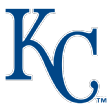
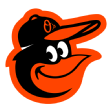 The Bad Stuff: The Royals are projected to win 56 games. The Orioles are projected to win 54. Worst of all, it's not clear that either team was trying. The Royals started almost all veterans in their Opening Day lineup, have the fourth-oldest lineup in the American League and spent the winter trying to re-sign Eric Hosmer. The Orioles signed Andrew Cashner and Alex Cobb in the offseason and held on to Manny Machado until this week.
The Bad Stuff: The Royals are projected to win 56 games. The Orioles are projected to win 54. Worst of all, it's not clear that either team was trying. The Royals started almost all veterans in their Opening Day lineup, have the fourth-oldest lineup in the American League and spent the winter trying to re-sign Eric Hosmer. The Orioles signed Andrew Cashner and Alex Cobb in the offseason and held on to Manny Machado until this week.
There's no shame in being bad these days. But you could see, in each team's winter, just a little bit of hope that it could catch a miracle -- each team had, in the past few years, defied projections and conventional wisdom and bigger-budget rivals and done it. It's that hope, extinguished, that makes for a truly terrible season.
Success Reset: Never hope again.
